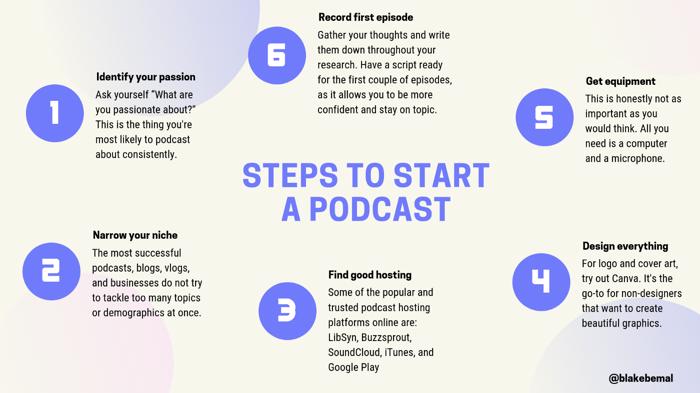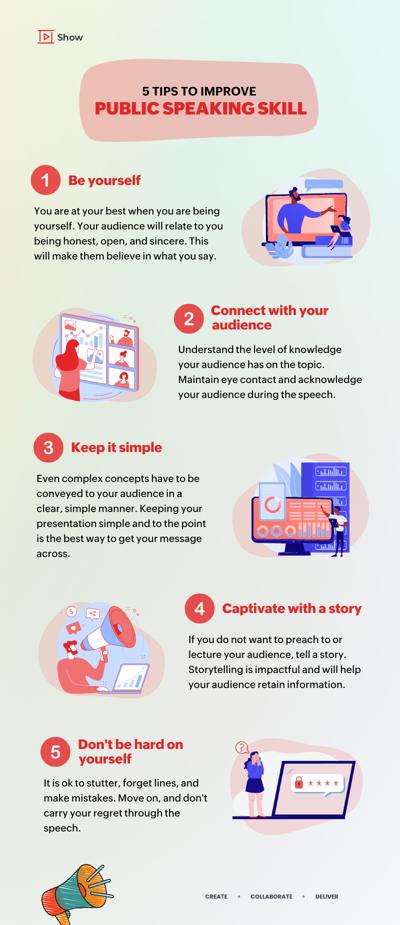How to Master the Art of Public Speaking with Confidence
Techniques and Strategies to Enhance Your Public Speaking Skills

Frequently Asked Questions
If you forget part of your speech, stay calm. Take a moment to pause, breathe, and try to remember your next point. If you can't recall it, transition gracefully by summarizing what you've already covered or asking the audience if they have questions.
Managing anxiety can be achieved through various methods, such as deep breathing exercises, visualization techniques, practicing your speech multiple times, and focusing on positive affirmations. Remember that nerves are normal and can be used to fuel your enthusiasm.
Step by Step Guide
1
Understand Your Audience
Before preparing your speech, take the time to learn about your audience. Understanding their interests, demographics, and what they hope to gain from listening to you will help you tailor your content effectively.
2
Define Your Purpose
Clearly outline the purpose of your speech. Are you trying to inform, persuade, entertain, or inspire? Defining your goal will guide the structure and content of your presentation.
3
Research and Structure Your Content
Gather information and research relevant topics. Organize your speech into a clear structure: Introduction, Body, and Conclusion. Use bullet points or an outline to visualize your speech flow.
4
Craft a Compelling Opening
Start your speech with a strong opening statement or an interesting story that grabs attention. This sets the tone for your speech and pulls in the audience right away.
5
Use Visual Aids Effectively
Incorporate visual aids like slides, videos, or props to enhance understanding and retention. Ensure they complement your speech rather than distract from it.
6
Practice, Practice, Practice
Rehearse your speech multiple times. Practice in front of a mirror, record yourself, or present in front of friends or family. Familiarity will help you feel more at ease.
7
Master Your Body Language
Body language plays an essential role in public speaking. Focus on maintaining eye contact, using hand gestures, and adopting an open posture. This enhances your connection with the audience.
8
Manage Your Anxiety
Many people feel nervous before speaking in public. Use techniques like deep breathing, visualization, and positive affirmations to calm your nerves. Remember that it's normal to have some anxiety.
9
Engage with Your Audience
Encourage audience interaction through questions, polls, or discussions. Engaging with your listeners makes your speech feel more like a conversation rather than a monologue.
10
Conclude Effectively
Summarize your key points and leave the audience with a memorable closing statement or call to action. A strong conclusion reinforces your message and provides closure.
11
Seek Feedback
After your presentation, ask for feedback from peers or mentors. Constructive criticism helps you identify areas for improvement and refine your skills further.
12
Constantly Improve Your Skills
Public speaking is a skill that can always be enhanced. Join public speaking clubs like Toastmasters, attend workshops, and continuously seek opportunities to hone your craft.








